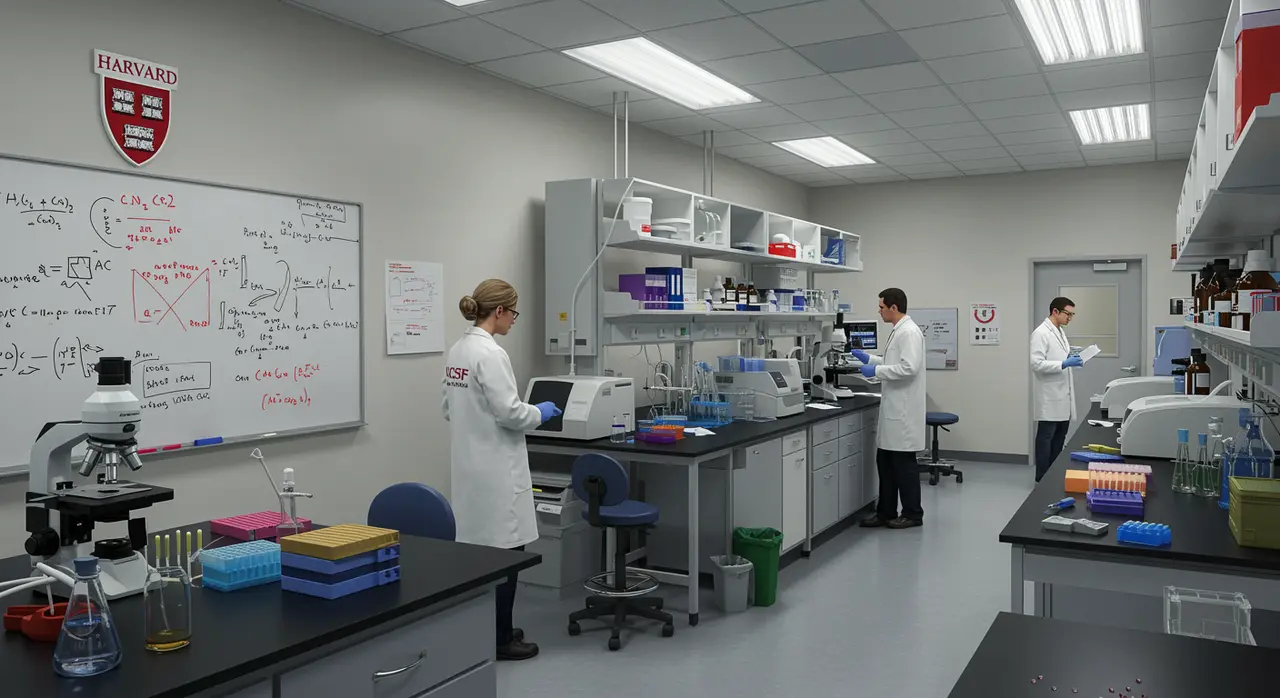Harvard and UCSF Scientists Win $3M Prize for Transformative Multiple Sclerosis Research
68 views
Two luminaries in the field of medical science, Dr. Alberto Ascherio of Harvard University and Dr. Stephen Hauser of the University of California, San Francisco, are set to share the prestigious $3 million Breakthrough Prize in Life Sciences for their transformative research on multiple sclerosis (MS). Their individual contributions have not only deepened the understanding of this complex autoimmune disease but also paved the way for innovative treatments and potential preventive strategies. The award ceremony, a glittering acknowledgment of scientific ingenuity, will take place on April 5 in Los Angeles.
Transforming Multiple Sclerosis Research: A Dual Triumph of Discovery
Multiple sclerosis, a condition where the immune system mistakenly attacks the protective myelin sheath surrounding nerve fibers, has long puzzled researchers. Its symptoms—ranging from numbness and weakness to impaired coordination—can vary widely, making it a particularly challenging disease to study and treat. Yet, the work of these two scientists has provided clarity where there was once ambiguity, reshaping the contours of MS research and treatment.

Dr. Stephen Hauser’s groundbreaking discovery that B cells, alongside T cells, play a pivotal role in MS marked a turning point in the field. For decades, T cells were considered the primary culprits in the disease’s progression, but Hauser’s research revealed that B cells were equally instrumental in driving the immune system’s attack on myelin. This insight led to the development of B-cell-depleting therapies, most notably ocrelizumab, a drug that has since become a cornerstone in MS treatment. By targeting B cells, ocrelizumab has not only reduced the frequency of MS relapses but also slowed disease progression, offering hope to countless patients worldwide.
On the other hand, Dr. Alberto Ascherio’s epidemiological research has illuminated the role of Epstein-Barr virus (EBV) in MS. In a meticulous 20-year study, Ascherio demonstrated that individuals infected with EBV were 32 times more likely to develop MS than those who were not. This finding has firmly established EBV as the leading risk factor for the disease, shifting the focus of MS research from merely managing symptoms to potentially preventing the disease altogether. Ascherio’s work has spurred efforts to develop vaccines or antiviral treatments targeting EBV, a prospect that could revolutionize the way MS is approached in the years to come.
The Breakthrough Prize, often referred to as the “Oscars of Science,” has been awarded annually since 2013 to recognize paradigm-shifting research in physics, mathematics, and life sciences. With its substantial monetary reward and high-profile ceremony, the prize underscores the value of scientific discovery in addressing some of humanity’s most pressing challenges. This year, the spotlight on MS research highlights the urgency of understanding and combating a disease that affects millions globally.
A Broader Perspective on the Impact of Their Work
The significance of Hauser and Ascherio’s contributions extends far beyond the confines of MS research. Their findings underscore the power of scientific inquiry to challenge long-held assumptions and open new avenues for treatment and prevention. Hauser’s work, for instance, has implications for other autoimmune diseases where B cells may play a role, while Ascherio’s identification of EBV as a risk factor for MS raises questions about the virus’s involvement in other chronic conditions. Could targeting EBV also mitigate risks for diseases like lupus or rheumatoid arthritis? These are the kinds of questions that their research inspires, pushing the boundaries of what is possible in medical science.
Moreover, their achievements highlight the importance of collaboration between clinical and epidemiological research. Hauser’s laboratory breakthroughs in immunology complement Ascherio’s population-based studies, demonstrating that a multifaceted approach is often necessary to tackle complex diseases. This interplay between different scientific disciplines serves as a model for future research, emphasizing that no single perspective can provide all the answers.
The practical implications of their work are equally profound. Ocrelizumab, now a lifeline for many MS patients, exemplifies how targeted therapies can transform lives. Meanwhile, the prospect of an EBV vaccine could shift the focus of MS care from reactive to proactive, preventing the disease before it takes hold. Such advancements not only improve patient outcomes but also reduce the long-term economic burden of chronic illnesses, benefiting society as a whole.
Looking Ahead: A Legacy of Hope
As Hauser and Ascherio prepare to accept their Breakthrough Prize, their work serves as a reminder of the transformative power of science to improve human health. Yet, their discoveries are not an endpoint but a foundation for future innovation. The development of more effective B-cell-targeting therapies and EBV vaccines will require continued investment, collaboration, and ingenuity. But if their achievements are any indication, the future of MS research is bright.
In a world often preoccupied with immediate challenges, the recognition of their work is a moment to celebrate the enduring impact of curiosity, perseverance, and the quest for understanding. Hauser and Ascherio have not only advanced the fight against MS but also inspired a new generation of scientists to dream bigger and aim higher. Their legacy is not merely one of discovery but of hope—a testament to what is possible when the human spirit meets the mysteries of nature with determination and resolve.